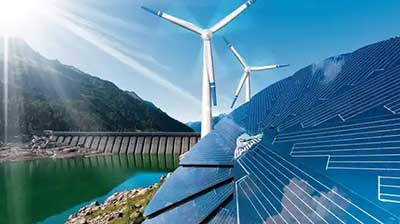Date: 21/12/2022
Relevance: GS-2: Effect of Policies and Politics of Developed and Developing Countries on India’s Interests, Indian Diaspora.
Key Phrases: Industrial Policies, Inflation Reduction Act, Geopolitical, Clean Technologies, Subsidies, Electric Vehicle, CBAM, Imports, Domestic Carbon Prices, Trade Rules, Non-Discrimination, Competitiveness WTO
Context:
- Recently, a foreign leader accused US President of pursuing “super aggressive" industrial policies.
- The complaint came from French President, a US ally, about the Inflation Reduction Act (IRA).
Key Highlights:
- IRA is an initiative to decarbonize the US economy by subsidizing domestic investment in electric vehicles (EVs), batteries, and other clean technologies.
- Firms qualifying for these subsidies require to source critical inputs from US-based producers.
- This troubles Macron and other leaders, who claim that the new legislation undermines European industry.
Is EU’s CBAM similar to USA’s IRA?
- The EU through its Carbon Border Adjustment Mechanism (CBAM), will soon impose duties on certain carbon-intensive imports.
- Imposing costs on other countries to address climate change is, precisely what the EU has been planning to do through CBAM.
- The objective is to keep domestic carbon prices high while preventing foreign businesses from challenging European producers with less expensive imports.
- The import duties will also hurt many lower-income countries such as Mozambique, Egypt and India.
- However, EU’s officials claim that the mechanism aims merely to level the playing field between European firms and does not give European companies an unfair advantage.
Arguments on Such Policies:
- Equalizing the costs of inputs such as electricity disproportionately affects exporters of energy-intensive products like steel and aluminum.
- That is the reason international trade rules have generally been averse to treating domestic and imported goods differently on the basis of their production processes. Protectionism under the guise of non-discrimination is too easily done.
- The Better Argument applying equally to IRA and CBAM:
- The climate challenge is too important to be overshadowed by trade and competitiveness consideration.
- Letting governments introduce ambitious environmental programmes to promote renewable energy, regardless of the impact on other countries, might just be the most feasible path to decarbonization.
CASE STUDY
- China with years of high subsidies for the country’s solar and wind industries turned Chinese firms into world champions, and China into the world’s pre-eminent renewable-energy producer.
- With American and European firms priced out of global markets, the West admonished China for its egregious favoritism’
- However, while the Chinese subsidies may have disadvantaged Western firms, they were also one of the best things that a government ever did to fight climate change.
- By enabling firms to scale up much faster than they otherwise would have, these policies helped to cut the cost of solar power by 90% and to halve the price of wind power.
- This enabled these technologies to become commercially viable enough to compete with carbon.
- Notwithstanding the hit to foreign rivals, China has made an undeniable contribution to solving humanity’s most pressing challenge.
Can WTO Adjudicate Disputes Over The CBAM and IRA?
- The WTO does let countries pursue independent policies for environmental reasons but the WTO is not the right forum for determining the circumstances under which trade rules should constrain green measures.
- The WTO’s general presumption is that governments should pursue non-trade objectives, such as environmental sustainability or public health, so long as they do not distort trade.
- In the real world, governments pursuing green policies face administrative and political hurdles that require deals to bring opponents and potential losers on board.
- The IRA and CBAM were both based on such bargains, promising people jobs and domestic producer’s profits in exchange for their agreement to a green transition that might otherwise be costly for them.
- So it would be inappropriate, for global trade panels to give judgment on the availability of alternative instruments and second-guess domestic political trade-offs.
Conclusion:
- Even when the conflict is more conventionally commercial, as was the case with the Chinese subsidies; it is unclear whether trade rules should stand in the way of the global decarbonization effort.
- Ideally climate change should be addressed through globally coordinated policies that combine carbon pricing, non-discriminatory subsidies for green technologies, and transfers from high- to lower-income countries.
- Our only chance to ensure a sustainable future depends on national policies that will be wildly diverse and driven by complicated local considerations. The world should not be trade purists over this and let the perfect become the enemy of the good.
Source: Live Mint
Mains Question:
Q. China with years of high subsidies for the country’s solar and wind industries turned Chinese firms into world champions. Comment (150 words).






















